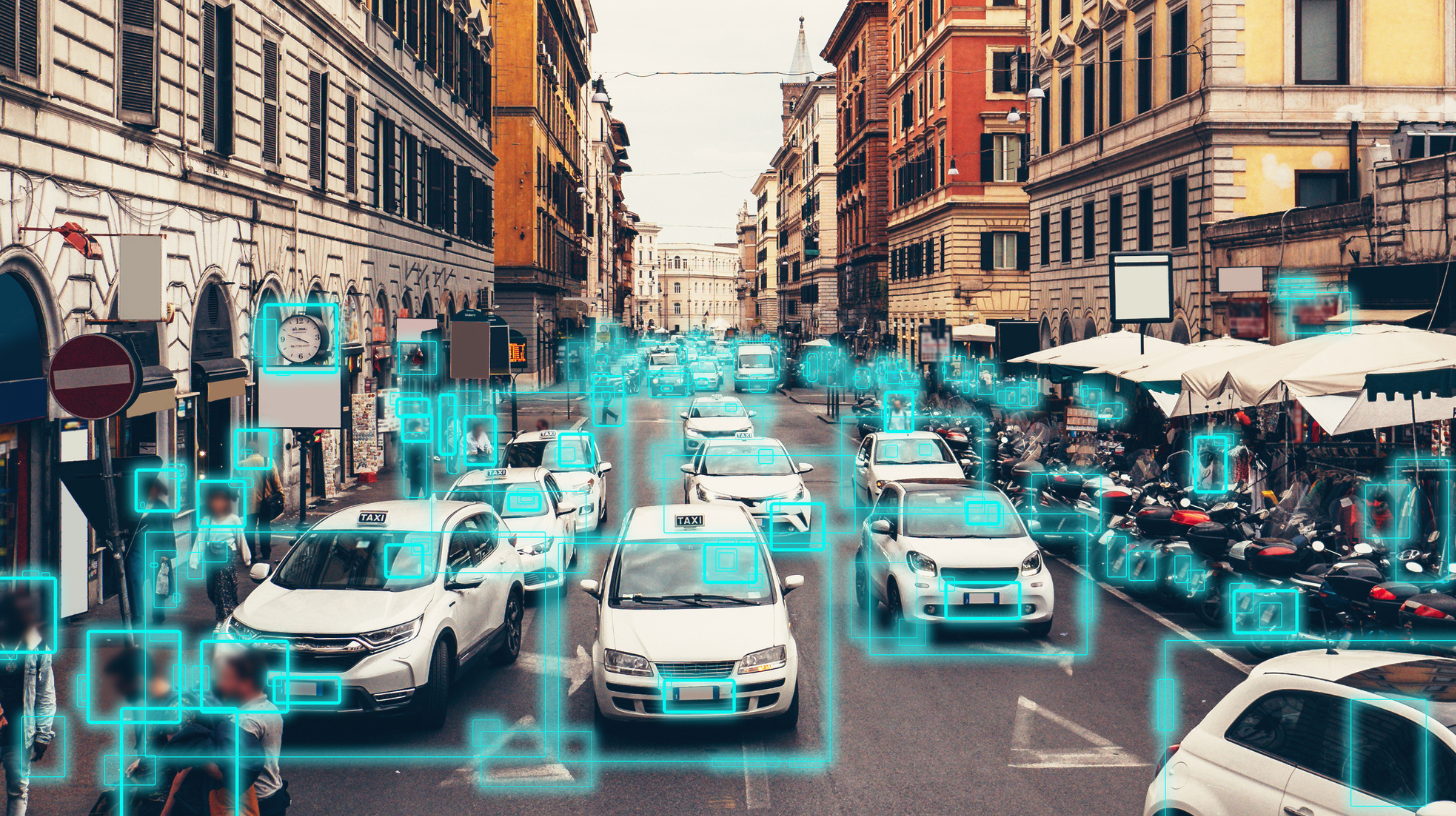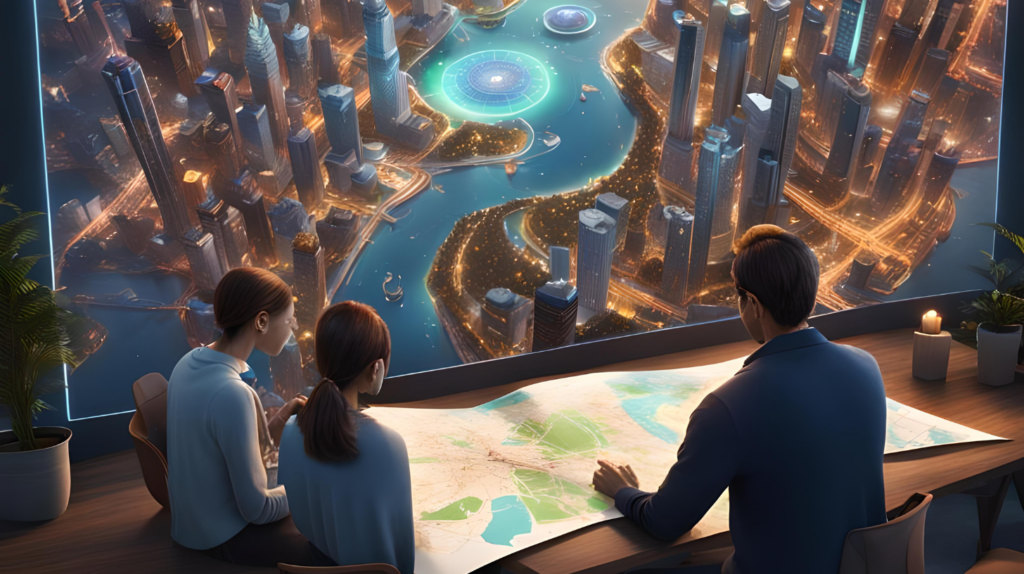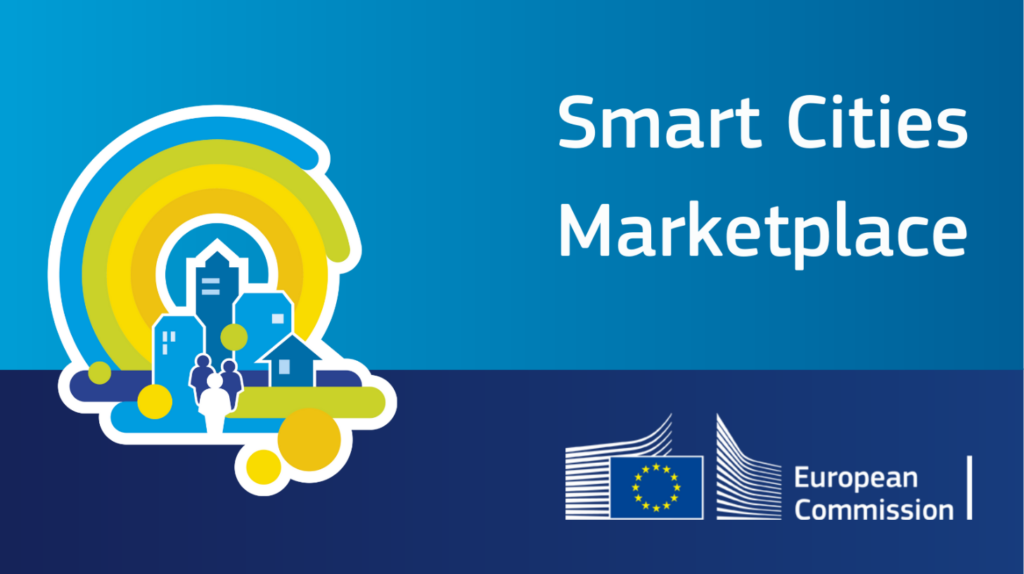The Green Cities consortium developed the blog post “AI as the New Key Elements in the Future Smart Cities” under the EU-Funded Project Youth Participation for Developing Sustainable Green Cities (reference number: 2022-1-DE04-KA220-YOU-000085135). L4Y Learning for Youth GmbH is leading the project alongside partners Citizens in Power, Toplum Gönüllüleri Vakfı, Kean, Walktogether, and Kaán Károly Környezetvédelmi Egyesület.
This blogpost is based on the training content developed for the Green Cities project. For more content like this, click here. If you would like learn more about the topic, we suggest enrolling in our free online training course. In the platform, you will also find the full list of references and extra suggested reading material.
To keep up to date with the project news, follow our YouTube Channel. As well as the project’s social media pages X and Instagram. Additonally, you can also join our Discord community.
Introduction
Artificial Intelligence is changing cities. It’s not just reshaping the way we inhabit them. It’s reconfiguring the way our cities operate—as well as it’s changing the way we operate in them through AI. AI is also reconfiguring the quality of life in cities, ranging from building resource utilisation to government services. As a result, this blog will assess the role of AI technologies in the growth of urbanism. This will show that these innovations are having an immediate impact on intelligent urban areas.
How AI can impact future Smart Cities
Make a Big Role in Renewables
Offer more grid stability and concentration will use optimisation algorithms/machine learning models to fix it. However, this will then stabilize energy generation and distribution to stance supply and demand, reducing or eliminating fossil fuels’ dependence.
Information Driven
AI should also assist cities in analysing big data on energy usage, weather predictions, and infrastructure efficiency. Other smart solutions, like the data-driven initiatives proposed above, will help reduce energy consumption with additional costs. This, in turn, will reduce the environmental strain associated with that usage.
Predict the Future
AI-powered solutions, once deployed, help cities plan for future challenges of city planning and infrastructure. This will also be done by AI using predictive analytics and simulation to simulate growth scenarios. This gives a clearer image of the city to organisation planners. They will see what will be the target of the infrastructure proposed and potential vulnerabilities. This approach will buy in resources for expansion beyond quick returns on development.
Digital Twins in Urban Planning
Also, these digital twins — virtual counterpart to the real things that show cities what type of mega-city a clone-world replicates: whole areas or systems within urban regions. With AI-driven digital twin platforms maturing, we will be able to set up dynamic models that can mimic the systems in this intricate web of interdependencies. This includes the testing of hypotheses for effective resource allocation as likely by urban planners and policymakers.
Different applications of AI in Smart Cities
Security
Firstly, AI-driven systems will enhance surveillance and threat detection, analyzing data from cameras, sensors, and social media. Facial recognition technology and predictive policing algorithms will improve law enforcement efficiency and crime prevention.
Transportation
Similarly, the system will auto optimize transport solutions and lead to better road congestion as well as more efficient public transportation. So it decreases the environmental footprint and takes us to sustainable waste management practices.
Waste Management
These AI efficiencies also tap into more specific uses– waste collection routing in order to capture predictable evolution of household generation, streets ripe for a recycling or composting campaign etc. Deploying smart sensors inside waste compactor-enabled containers has turned traditional trash bins into a sensing-edge-to-cloud solution for fill-level measurements, which in turn enable operational cost reduction by helping allocate collection routes more efficiently. This, in flip reduce the environmental influence and insure sustainability of waste management strategies.
Environmental Monitoring
Furthermore the AI driven sensor networks of that era would always keep sensing and alerting about the contaminated air which polluted in nature, signifying environment catastrophe. Advanced algorithms on the data will help in understanding of pollution patterns and eventually would lead to more informed decision making by policy makers.
Public Health
From diagnosing conditions at an early stage to suggesting personalised treatments, AI in healthcare has the potential to revolutionise virtually every aspect of patient care and community health. We consider how predictive analytics can be used to identify who is most at risk of getting ill, when a disease outbreak will hit and where it could take hold. AI-powered telemedicine platforms will improve healthcare access as well as patient outcomes.
Conclusion
So as a header — AI in few lines is transforming the world to make cities where we live and work smarter, efficient & resilient! From embedding renewable energy into an urban system to leverage data-driven planning for metropolitan areas and enhancing municipal services, the benefits AI technologies offer provide new levers on long-standing challenges posed by cities. Hence, as they are transforming today so are cities getting smarter and AI have a lot yet to do in the days set for its transformation. Securing both will enhance the lifestyle of every one people that reside here.













